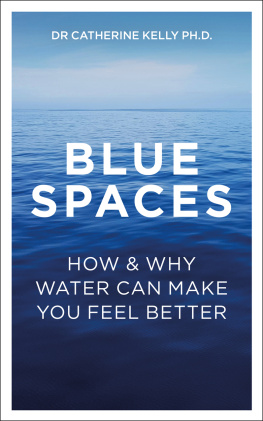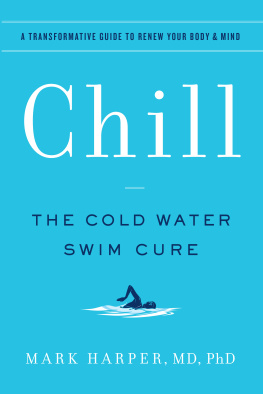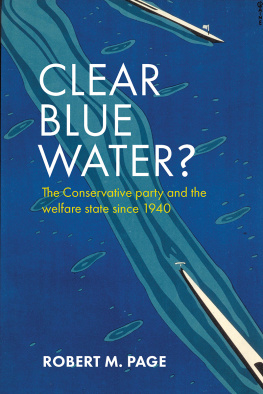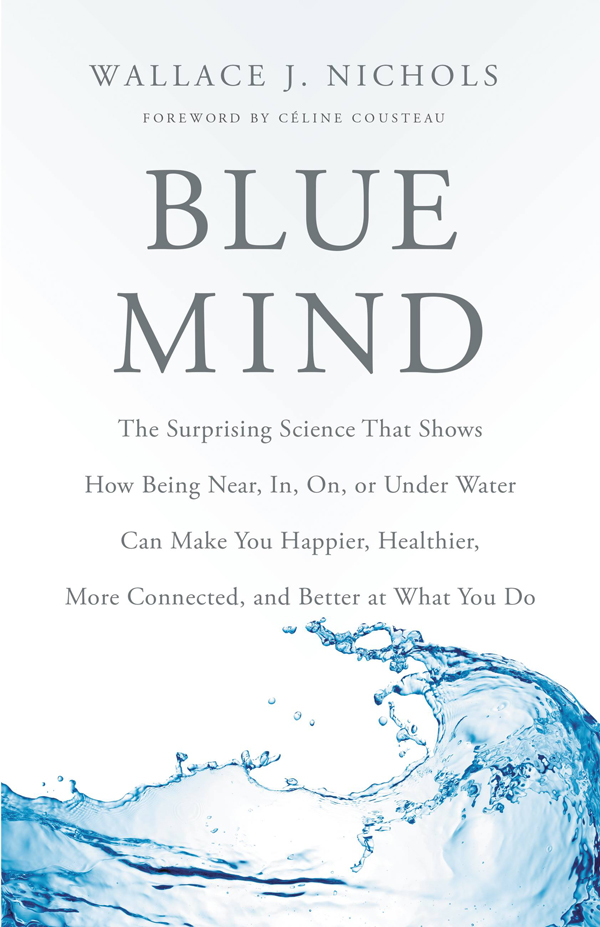Thank you for buying this ebook, published by Hachette Digital.
To receive special offers, bonus content, and news about our latest ebooks and apps, sign up for our newsletters.
For more about this book and author, visit Bookish.com.
Copyright 2014 by Wallace J. Nichols
Author photograph by Jeff Lipsky
Cover design by Allison J. Warner; photograph by Alex Staroseltsev/Shutterstock
Cover copyright 2014 by Hachette Book Group, Inc.
All rights reserved. In accordance with the U.S. Copyright Act of 1976, the scanning, uploading, and electronic sharing of any part of this book without the permission of the publisher constitute unlawful piracy and theft of the authors intellectual property. If you would like to use material from the book (other than for review purposes), prior written permission must be obtained by contacting the publisher at permissions@hbgusa.com. Thank you for your support of the authors rights.
Little, Brown and Company
Hachette Book Group
237 Park Avenue, New York, NY 10017
littlebrown.com
twitter.com/littlebrown
facebook.com/littlebrownandcompany
First ebook edition: July 2014
The publisher is not responsible for websites (or their content) that are not owned by the publisher.
The Hachette Speakers Bureau provides a wide range of authors for speaking events. To find out more, go to hachettespeakersbureau.com or call (866) 376-6591.
The Swimming Song, words and music by Loudon Wainwright III 1993 Snowden Music. All Rights Administered by Downtown DLJ Songs (ASCAP) / Downtown Music Publishing LLC. All rights reserved.
ISBN 978-0-316-25207-2
E3
For my mothers and fathers,
(S, S, K, W, J, V & J)
brothers and sisters,
(J, J, J, J, J, P, R, E & P)
daughters,
(G & J)
and my beloved,
(D)
I wish you water.
(J)

O f my grandfathers many famous quotes, these are the two I hear, read, and see emblazoned on walls and websites most often:
The sea, once it casts its spell, holds one in its net of wonder forever.
People protect what they love.
What did he mean when he said them? I can only inferhes not here to askbut I believe they should be taken in simplicity. The first is about that magical enchantment so many people feel toward the water. The second is about survivalprotecting what we love is a basic instinct to humans (just ask any parent). Taken together, these two ideas explain the lives of many aquatic scientists: you are pulled in and fall in love with the water world, so you dedicate yourself to protecting it. And yet, in an effort to remain unbiased, neutral, and impartial, these same scientists wouldnt think to investigate whats behind the passion that drives their work.
The same is true for millions of nonscientists who choose to go to the waters edge for a vacation. Most dont consider why this is where they best relax, replenish, and rejuvenate. They dont question that theyre getting something cognitively enriching from being by the water that goes way beyond sitting in a beach chair with a best-selling novel. They just know they love and need unplugged waterside time.
Im not so different. I was born into an ocean family; my grandfather Jacques helped bring the wonders of the undersea world to millions via television, and this is part of my DNA, part of how I function. But theres also a part of me that doesnt want to know why I love the water, a part that prefers to just see its effects as magical, something unknownindeed, unknowablebut deeply felt.
I dont think everything in life needs to be explained. But when I consider whats at stake, and the fact that we must encourage people to change their behavior and shift government policies if were going to restore the health of the worlds water systems, Ive come around to agreeing with my dear friend Dr. Wallace J. Nichols that its time to explain the magic.
While appealing to peoples emotions can be very effective in many instances, at some point you have to be able to appeal to their intellects. You also need to adapt the message to different audiences. If youre talking to a lawmaker, a fisher, a surfer, a real estate agent, or a mom, you have to speak their language. This sometimes means backing up the awe and wonder with numbers and facts, biology and neurochemistry.
As this book demonstrates, neuroscientists and psychologists are now producing research data that accomplish exactly that. We are beginning to learn that our brains are hardwired to react positively to water and that being near it can calm and connect us, increase innovation and insight, and even heal whats broken. Healthy water is crucial to our physiological and psychological well-being, as well as our ecology and economy. We have a blue mindand its perfectly tailored to make us happy in all sorts of ways that go far beyond relaxing in the surf, listening to the murmur of a stream, or floating quietly in a pool.
Because our love of water is so pervasive, so consistent, it can seem that asking why is a question that needs no answer. But once you begin to go deeper (no pun intended!), things are not as simple as we might initially think. We love the rhythmic sound of waves breaking on the beach, but why does that sound relax us more than nearly any other? How might our preference for the flat surface of a lake be rooted to prehistoric hunting patterns? Why does understanding the science of somatic tension help explain the pleasure we feel when submerged? And on and on, as youll see in this book. The result is not just understanding but inspiration. A comparison might be to gravity: we know what it is, but if our curiosity had stopped simply at the point of realizing that what we toss into the air must come down, we could never have landed men on the moon. So, too, waters effects on us.
Fortunately, as Ive become more involved with J.s Blue Mind project, Ive come to realize that understanding the science behind our feelings for water doesnt do anything to diminish those feelings. As J. likes to say, Looking at the science of wonder and love doesnt make it any less wonderful. Of course, statements like that can make scientists uncomfortable. Many people are afraid of the touchy-feely stuff that comes along with exploring human emotions. In 2013, when I attended the third annual Blue Mind Summit on Block Island, I found myself in an isolated place surrounded by people from all walks of lifeneuroscientists, psychologists, educators, divers, artists, musiciansand water. We provoked each other and explored different methods of explaining universal sensations. I go to a lot of forums and conferences, and usually we check our personal feelings and experiences with nature at the door, reserving them strictly for the closing keynote remarks, or limiting them to one-on-one exchanges during breaks. The neuroscientists who gave presentations had to explain their work in the context of this multidisciplinary event and tell us how it applies to emotion. A few of them said while they were comfortable writing reports full of charts, data, brain imagery, and chemical formulas, they didnt quite know how to











